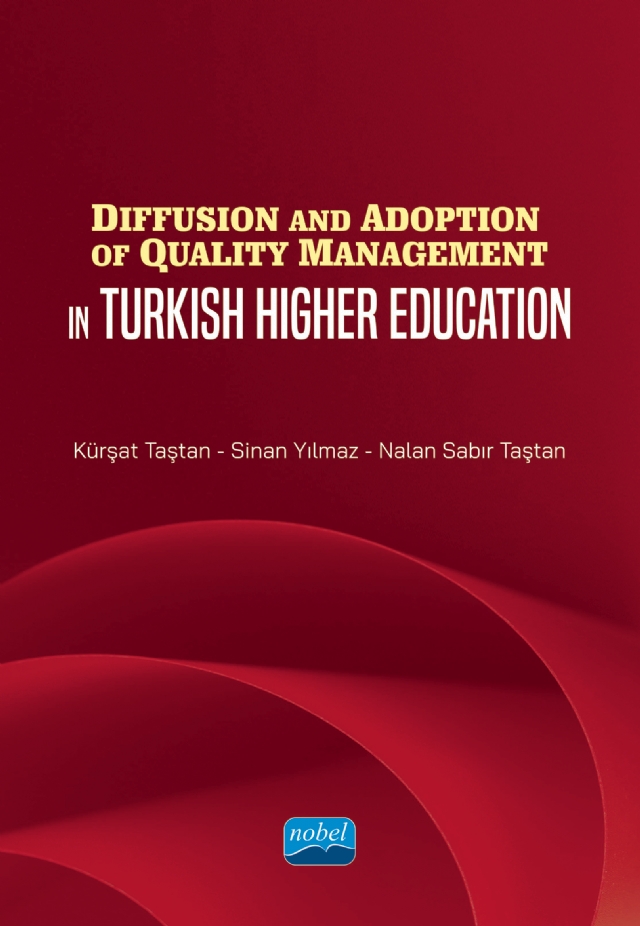
The quantitative growth of Turkish higher education, which started in the 2000s in direct proportion to the country's greatness, has resulted in Türkiye's attempts to become one of the leading European higher education countries, with expansive physical campuses and high-tech distance learning opportunities.
In the book, the reflections of the higher education quality studies in Türkiye, which followed the studies starting with the Bologna process in Europe, and the systematic studies of Turkish Higher Education Quality Council (THEQC), which was established as a national quality assurance agency in 2015, are tried to be illustrated based on the data of a scientific study.
Higher education quality studies, which started with the establishment of THEQC, have been a turning point for the Turkish higher education system. Turkish higher education, where the diffusion and adoption of quality management by ESG standards have been completed in general, has the potential to create Europe's most successful universities in the next ten years by applying quality more and more.

The concepts in language, literature, translation, and in social sciences tend to be supple and flexible content-wise. The conceptual fluctuations within and among disciplines require continual updates of conceptual readings. The content becomes richer when shared among disciplines and is transformed with a redefinition. With this in mind, the chapters of this book, penned by 14 academics from five countries, are designed to pave the way for novel conceptual and consensual readings aligning in a smooth and interrelated combination of different contents.
Les concepts en langue, en littérature, en traduction et, plus généralement, en sciences sociales ont tendance à être souples et flexibles sur le plan du contenu. Les flottements conceptuels au sein des disciplines et entre elles exigent des mises à jour continues des lectures conceptuelles. Le contenu s'enrichit au fur et à mesure qu'il est partagé entre les disciplines et se transforme avec une redéfinition. C'est dans cet esprit que les chapitres de cet ouvrage, rédigés par quatorze universitaires de cinq pays, sont conçus pour ouvrir la voie à de nouvelles lectures conceptuelles et à de nouveaux consensus notionnels.
Yazarlar / Authors / Auteurs:
Sündüz Öztürk Kasar - Magdalena Nowotna - Susan Petrilli & Augusto Ponzio
Evangelos Kourdis - Didem Tuna - Sema Dilara Yanya - Javid Aliyev
Mesut Kuleli - Osman Senemoğlu - Erol Kahraman & Muhammed Salih Kapcı
Lale Özcan - Alize Can Rençberler

Besides, the book provides a well-informed viewpoint and understanding that could aid in reforming and refining inclusive practices and the identification and process of inclusion of students with SEN in regular classes. It adds to the body of knowledge by supplementing the limited number of existing studies on teachers' attitudes towards the inclusion of students with SEN in Turkey. Finally, it stimulates other researchers to duplicate the research to corroborate its findings or to do additional research into the many factors that impact teachers' attitudes, both positively and negatively.
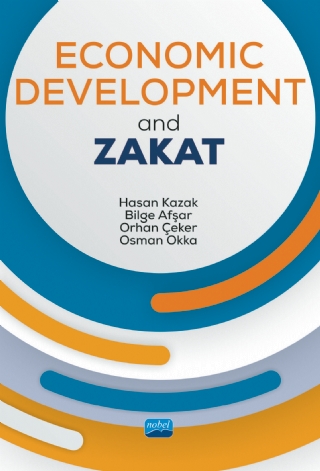
The most known and prominent feature of the zakat institution is its contribution to the fair distribution of national income, which is an important indicator in terms of economic development. A lot of work has been written on this subject and this issue has been mentioned in almost every sermon of Islamic scholars. However, the zakat institution has much more significance and benefits in terms of economic growth and development process.
The main purpose of this study is to create a resource for the qualitative and quantitative studies that will be carried out, by revealing other contributions of zakat to economic growth and development, which are not in the foreground but are actually much more functional as well as its other well-known contribution to income distribution.

Geniş bir kitleyle muhatap olan inşaat mühendisinin etkin bir şekilde yabancı dildeki terminolojiyi anlaması ve kullanması için okuyucu dostu olarak hazırlanan bu eserin yazarı Sayın Bülent Karakaya'nın mesleğine olan sevgi ve saygısının bir tezahürü olarak hayat bulduğu söylenebilir. Sayın Karakaya'nın hazırladığı bu eserinden dolayı kendisini tebrik eder büyük bir eksikliği gidereceğine inandığım bu eseri özellikle genç meslektaşlarıma hararetle tavsiye ederim.”
Prof. Dr. Abdulkadir Cüneyt Aydın
Erzurum Atatürk Üniversitesi Mühendislik Fakültesi
İnşaat Mühendisliği Yapı Bölümü Başkanı
"Dear Mr. Karakaya,
I would like to congratulate you for taking on such an important task. In a world that requires global competition, such a contribution is much needed. Best wishes.”
Professor Dr. Necati Catbas
Civil Engineering Faculty Central Florida University, USA
"Dear Mr. Karakaya,
Thank you very much for sharing your booklet with me. I am impressed by its style and content, and I hope that your booklet will be a very useful resource for young engineers.With my best wishes.”
Associate Professor Oya Mercan
University of Toronto Civil Engineering Department, Canada

Every department in an organization has its own leader. Yet, a larger organization is still in need of a highly recognizable figure that will be responsible for making sure that the leadership figure in each department of the business is on the same page and completely understands the short and long-term goals of the business.

1. Kitabın ağırlık noktasını konuşma kalıpları, kelime hazinesi ve temel diyaloglar oluşturmaktadır. Bunların yanında dil bilgisi de ihmal edilmemiştir.
2. Görsel malzemeler hem sınıf içinde hem sınıf dışındaki faaliyetlerde öğretim elemanlarına ve öğrencilere yardımcı olacak ve onların yükünü hafifletecektir.
3. Konu anlatımları ve yönergeler, Türkçe açıklamalarla birlikte verilmiştir.
4. Kelime hazinesi, temel ihtiyacı karşılayacak kelimelerden oluşmaktadır.
5. Dil bilgisinin ağır konuları yerine, daha temel konulara yer verilmiş; detaya girilmemiştir.

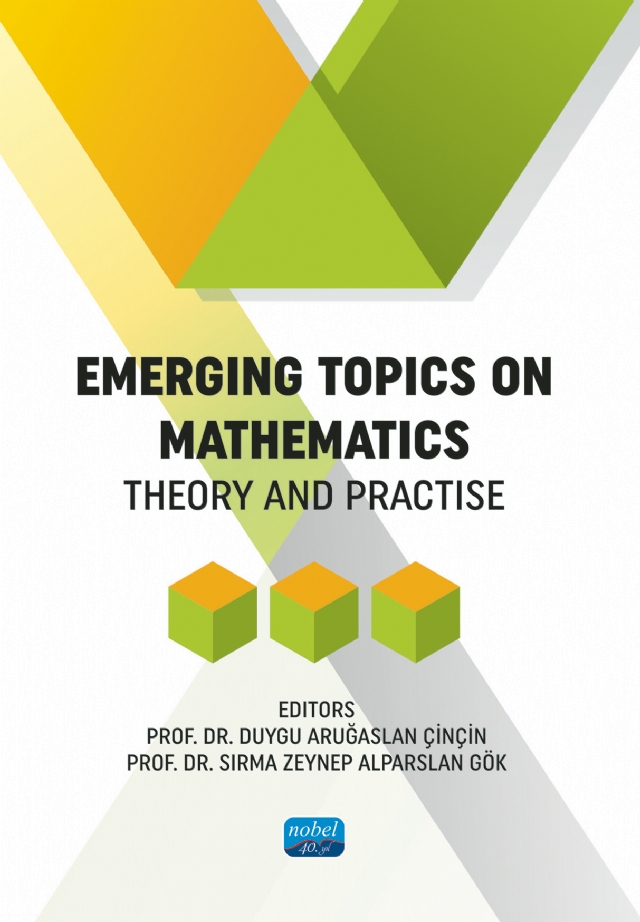
This book brings together a rich collection of innovative mathematical ideas that have been developed to address today's complex challenges in science, technology, and industry. Covering a broad range of topics—from cryptography, machine learning, and neural networks to civil engineering applications, chaos theory, disease modeling, and financial stability—each chapter explores new approaches to solving real-world problems that impact our daily lives. With practical examples, such as enhancing emergency evacuation strategies, modeling crowd behavior, and evaluating the financial health of banks, this book demonstrates how mathematics plays a crucial role in developing efficient, impactful solutions.
Ideal for researchers, professionals, and anyone with an interest in the power of mathematics, this book serves as both a reference and an inspiration for applying math to tackle current interdisciplinary issues. It provides fresh perspectives on longstanding problems and offers creative approaches that showcase the potential of modern mathematical tools. A valuable resource for both new and experienced practitioners, this book highlights how math continues to evolve, driving innovation and understanding in our ever-changing world. Readers will discover practical insights and advanced methods that are both timely and essential for study or inspiration.



The lesson plans and activity suggestions prepared in accordance with the 5E model, the advantages of which are recognized by professionals, are designed in a way that teachers can adapt them into their own lessons, as well as a useful resource that can serve as a guide for young people who prefer self-directed learning. The topics are based on themes that will support the personal and academic skills of our students by examining the curricula of countries that have proven their success in education. We hope that it will be useful to education stakeholders...

“SPactivities – Advanced”, ileri seviyedeki öğrencilerin İngilizce konuşma becerilerini geliştirmeye yönelik aktiviteleri içermektedir. Bu kitapta ileri düzeye gelmiş öğrencilerin, dil bilgisel olarak zaten çok fazla eksiği olmadığı varsayılarak, konuların içeriğinde ilk iki kitabın aksine herhangi bir dil bilgisel odak noktası bulunmamaktadır. Bunun yerine aktiviteler tamamen “dilde akıcılığa” yöneliktir. Seçilen konu başlıkları müzik, sinema, internet, spor, eğlence, eğitim vb. üzerinde konuşulabilecek birçok konudan oluşmakta ve konuların herkese hitap etmesi sayesinde öğrencilerin ders içi katılımını oldukça artırmaktadır. Kitapta ayrıca “Idioms and Expressions” başlığı altında İngilizcede günlük hayatta sürekli kullanılan deyimler ve ifadeler açıklamalı ve örnekli olarak ayrı bir bölüm halinde yer almaktadır.
Konuşma becerileri üzerine hiçbir kaynağın yazılmadığı ülkemizde tüm seviyeler üzerine hazırlanmış tek kaynak olan “SPactivities” serisinin her kitabı, sınıf içi motivasyonu yükseltmek ve İngilizce derslerini eğlenceli ve dinamik bir atmosfere dönüştürmek isteyen öğretmenlere kesinlikle önerilir.
SPactivities offers:
A simple well-organized format
A varied range of classroom activities for practising oral English
SPactivities includes:
Lots of engaging and interesting topics which draw students into a variety of diverse subjects ranging from “Movies” to “Hobbies”, including “Social Issues”
A list of everyday idioms and expressions with clear definitions and examples
SPactivities is recommended for:
More advanced english language learners who want to develope conversation skills and improve fluency
English teachers who want to raise general learner motivation and make the English language classroom a fun and dynamic place

Corporate entrepreneurship is the practice of fostering an entrepreneurial mindset and ethos within an established company in order to develop new lines of business, goods, or services in order to increase the company's value and revenue. This can be accomplished by encouraging employees to think like entrepreneurs and by providing them with opportunities to act as entrepreneurs themselves. The spirit of entrepreneurship in the workplace cultivates an environment that is conducive to the development of new concepts and opportunities for growth. it provides an overarching perspective on the organization's capacity to think and behave entrepreneurially, including the people, systems, and culture that are necessary for doing so successfully. Building capabilities that allow corporations to speed up the establishment of new businesses is the objective of corporate entrepreneurship, which seeks to achieve this goal by encouraging its participants.
We present the work of a number of researchers who have paid the nascent topic of entrepreneurial corporate governance the attention it warrants in this collection. Their contributions may be found throughout the book. This book is intended to serve as a guide for readers as well as business researchers who are interested in delving more deeply into the subject of entrepreneurial corporate governance.
Authors
Kavita Dahiya - Pallavi Pandey - Avichal Sharma - Rajinder Kapil - Simarpreet Kaur
Tripti Sharma - Aarti Garg - Simranjit Singh - Anjali Rana - Rajwinder Kaur
Sunita Kamboja - Karnabir Singh Sidhu - Parveen Garg - Wishey Kataria
Chintalapati Neelima Rani - Nil Caglar Bektas - Adalet Hazar - Senol Babuscu

Ensuite, le gouvernement n'a pas eu d'autre choix que de mettre en pratique la pratique de la déportation pour éviter la rébellion, à savoir: la trahison arménienne, qui est aujourd'hui généralement symbolisé par la date du 24 avril 1915, qui devient également une veille du "débarquement britannique à Gallipoli".
Le décret de réinstallation émis par le gouvernement ottoman visait à empêcher les résidents locaux de soutenir, de renforcer et d'inciter les mouvements arméniens agressifs, qui se battaient volontiers pour l'armée adversaire (russe) contre leur propre pays, étant eux-mêmes et aux citoyens de l'Empire ottoman. En plus de cela, sous la forme de gangs armés organisés, ils assassinaient des innocents turcs et / ou musulmans de la région.
Cette décision de réinstallation temporaire a également résolu d'autres problèmes au sein des lignes de communication logistique de l'armée et des autres lignes d'approvisionnement, qui ont été empêchés par ces gangs.
Des gangs arméniens poignardaient l'armée ottomane dans le dos, et des mutinés arméniens causaient encore d'autres maux tels que torturer et massacrer honteusement des femmes, des personnes âgées et des enfants dans les maisons turco-musulmanes laissées par les jeunes de la maison, ceux qui étaient alors occupés à mener des batailles féroces sur les lignes de front d'une guerre féroce, ce que ces gangs faisaient était exactement un "nettoyage ethnique", que dans ces circonstances, la décision de l'État était une précaution obligatoire de la situation de guerre stratégique.

Entonces el gobierno no tenía más remedio que poner en vigor la práctica de deportación para evitar la rebelión, i.e: la traición, armenia, la que hoy suele ser simbolizada por la fecha del 24 de abril de 1915, el que también pasa a ser un día antes del 'desembarco británico en Gallipoli'.
El decreto de reubicación emitido por el Gobierno Otomano tenía la intención de impedir a los residentes locales apoyar, reforzar e instigar a los agresivos movimientos armenios, quienes voluntariamente estaban luchando por el ejército adversario (ruso) en contra a su propio país, siendo ellos mismos ya los ciudadanos del Imperio Otomano. Además de esto, en forma de unas bandas armadas que organizaban, estaban asesinando a las inocentes gentes turcas y/o musulmanas de la zona.
Esta decisión de recolocación temporaria resolvió también unos otros problemas dentro de las líneas de comunicación logísticas del ejército y las otras líneas de suministro, las que se impedían por éstas bandas.
Las pandillas armenias estaban apuñalando al ejército otomano por la espalda y los mutinos armenios causaban aun otros males como que torturaban y masacraban vergonzosamente a las mujeres, a los ancianos y a los niños en las casas turcas/musulmanes dejadas atras por los jóvenes de la casa, quienes entonces estaban ocupados luchando feroces batallas en las líneas del frente de una feroz guerra, lo que hacian aquellas bandas era exactamente una “limpieza étnica”, que en estas circunstancias, la decisión del estado era una precaución obligatoria del la situación estratégica bélica.

Bilginin nasıl elde edildiğine odaklanan kanıtsallık kategorisi son yıllarda ciddi ilgi görmektedir. Ancak kanıtsalların gelişimi, bilginin kaynağını bildirme stratejileri, sosyal etkileşimde kanıtsalların iletişimsel işlevi, yerel ve sosyal değişkelerdeki görünümleri gibi bir dizi konu hâlâ araştırılmayı beklemektedir. Hacettepe Üniversitesi Çağdaş Türk Lehçeleri ve Edebiyatları Bölümü ile Johannes Gutenberg Üniversitesi Türkoloji Bölümünün iş birliğiyle hazırlanan bu kitap, 12 bölümde, farklı Türk dillerinden veriler yardımıyla kanıtsallık araştırmalarına katkıda bulunmayı amaçlamaktadır.


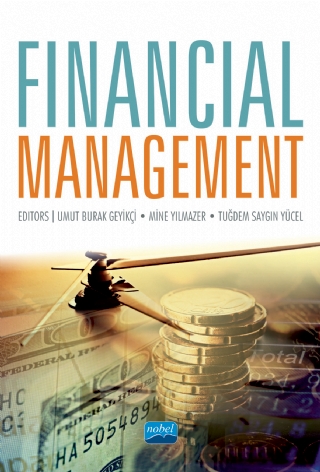
Dr. Mahfi Eğilmez
This book covers all topics related to financial management. The most important feature of the book is that it contains plenty of examples on each subject in order to facilitate students' comprehension. In addition, it will be easier to understand the unit as a whole with the end of the section evaluations consisting of classic and test questions. Many factors have been instrumental in the emergence of this book. First of all, there are over a hundred business management and similar departments providing education in English at universities in Turkey. Among the books taught in these schools, the number of financial management books written in English is extremely limited. Second, the English financial Management books used in these schools are of UK and North American origin. So theories, examples, practices are largely related to these countries. Third, financial management books written and sold in the UK and North America are very expensive, which is quite high for students studying in Turkey. Fourth, as a developing country, financial practices in Turkey, the financial structures and environment of companies are quite different from developed countries.
The challenges mentioned above are the main sources of motivation for writing this book. The faculty members involved in the book's writing are people who have experienced those challenges. All have a long educational background and besides they are involved in the financial markets and some of whom are in decision-making positions. Each of the sections contains real world and Turkey examples, values, current financial practices and new theories. The price of this book has been kept as low as possible. Thus, it is aimed to contribute to both our students and the economy of the country.
Financial managers, students, academicians and other interested in the financial sector will benefit from the theories, examples, problem solutions and recommendations contained in the book. We wish the book to be useful to students and all interested in finance.
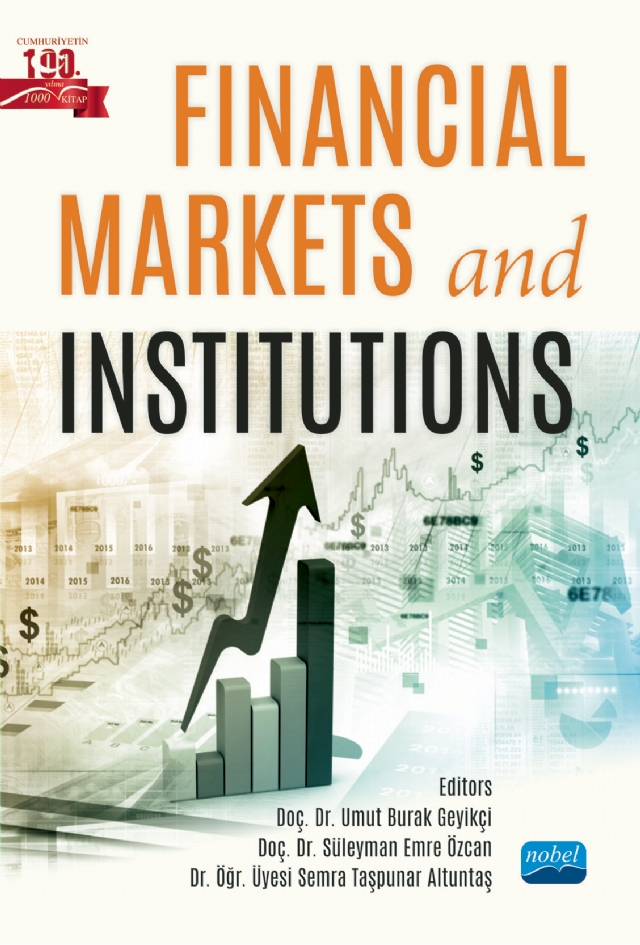
This textbook's strong market focus and superior pedagogy are combined with a complete digital solution to help students achieve higher outcomes in the course. Combining theory, data and policy, this successful book examines and explains financial markets, financial infrastructures, financial institutions and the challenges of financial supervision and competition policy.
Financial Institutions are described in detail, as are the operation of the key markets, including the equity, bond, money, commodity and derivatives markets. Turkey's regulatory instutitions and strategies are described as well. This book also highlights the latest developments in Turkey's financial banking industry. The authors examine recent developments, among them the introduction of new laws.
Financial Markets and Institutions is an accessible book for both undergraduate and graduate students of Finance, Economics and Business Administration, financial managers, academicians and other interested in the financial sector. We wish this book will be useful to all students and those interested in finance.

The book can be taught in a sequence of three fundamental and two design courses in undergraduate programs of Food Engineering Departments. This book will also be a reference for other engineering courses for both undergraduate and graduate students. Besides food engineering students, the material in the book may be of interest to people who are working in the field of Food Science, Food Technology, Biological Systems Engineering, Food Process Engineering, Chemical Engineering and Agricultural Engineering.

Key features:
• Comprehensive coverage of phrasal verbs
• Turkish translations of sample sentences
• Consolidation in numerous tests
• Ideal for self-study or classroom use
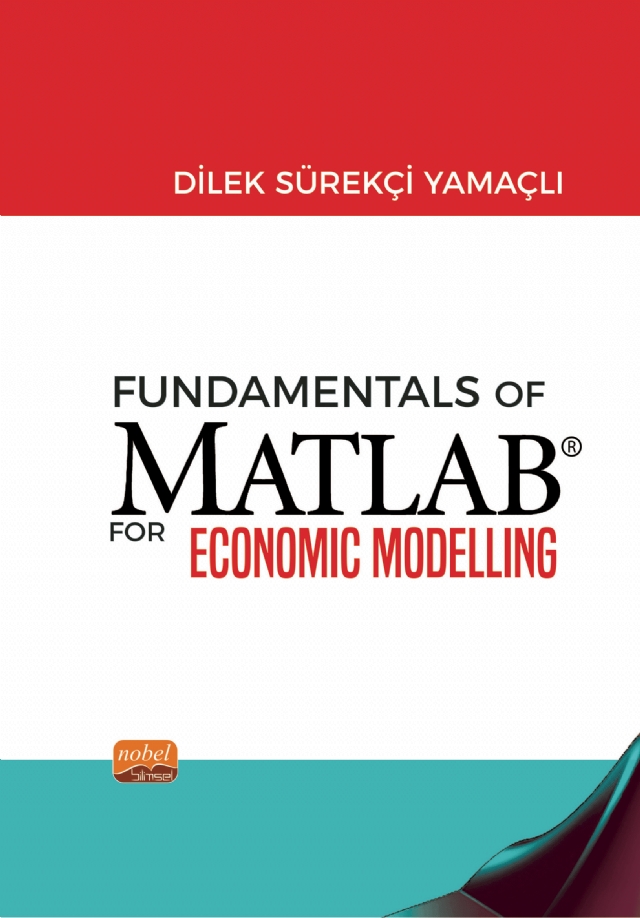
Chapter 1: What is MATLAB®? An Overview
Dive into the world of MATLAB® in this opening chapter, where you'll discover that MATLAB® is more than just software—it's a versatile computational environment specifically designed for engineers, scientists, and economists. Learn how its interactive, user-friendly interface empowers you to effortlessly perform complex calculations and create sophisticated models.
Chapter 2: Mathematical Operations in MATLAB®
Delve into the core of MATLAB® with its unparalleled mathematical capabilities. From basic arithmetic to advanced calculus, MATLAB® equips you to manipulate and analyse data effortlessly. These foundational skills serve as the building blocks for advanced modelling and analysis techniques.
Chapter 3: Plotting Operations
Visualization is key in economic modelling, and in Chapter 3, you'll explore MATLAB®'s proficiency in 2-dimensional and 3-dimensional plotting. Witness how MATLAB®'s rich graphics capabilities allow you to present complex economic concepts in an accessible and insightful visual manner.
Chapter 4: Custom Functions
Discover the backbone of MATLAB®'s flexibility in Chapter 4. Learn to create your own functions with input and return arguments, fostering reusability and modularity in your economic models. These custom functions encapsulate your modelling logic, offering a powerful tool in your toolkit.
Chapter 5: Time Series Analysis
Unravel the intricacies of time-dependent economic data in Chapter 5. Explore stationarity tests, time series decomposition, and the application of least squares linear regression in MATLAB®. Equip yourself with the essential tools for analysing and predicting economic trends using ARIMA modelling and forecasting.
Embark on a comprehensive journey through MATLAB®, mastering the skills and techniques necessary for insightful economic modelling and analysis. Whether you're an engineer, scientist, or economist, this guide unlocks the full potential of MATLAB® for your economic insights.

Three pillars of management; It is a deep understanding, a strong will and a building power.
A good management team is a harmonious combination of reason, conscience and courage. Reason knows, conscience humanizes, courage builds.
Loyalty is the sign of friendship and merit is the sign of work.
Management can be a professional profession or a duty, in any case, it is a trust. Avoid 5 things if you want to maintain justice.
The manager should look from the opposite side wearing the moccasins of the parties to understand the reality, from above to see the integrity, and from the inside to know the details.
Necessity and incentive are essential for a work to come into being.

Our book contains detailed information about experiments where students can apply the theoretical knowledge they have learned in General Chemistry Laboratories and General Chemistry Courses. For this purpose, first of all, the rules to be followed in general chemistry laboratories, the points to be considered about the correct use of chemicals, the use and cleaning of laboratory materials and devices are explained.
After general information, preparation stages for each experiment, the key parts and detailed protocols for each experiment are given.
In this way, it is aimed that students learn the discipline of working in the laboratory and conduct experiments within the scope of general chemistry laboratories.
It is expected that the General Chemistry course, which is usually a 1st year course, will also help students to process other laboratory courses that they will be carried out in later years, by explaining the rules to be followed in the laboratory and the report writing technique.

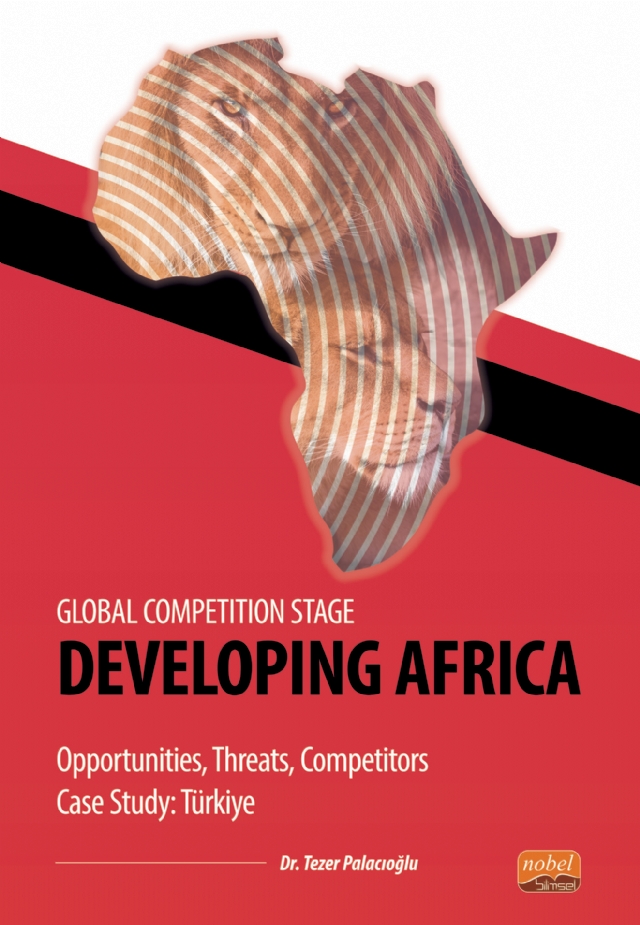
i) Introduce high value-added products with new technology that will meet the purchasing demands of existing consumers and provide new benefits to them,
ii) Finding new markets,
iii) Both.
These requirements clearly explain the struggle to "grab a corner" in Africa which is expected to supply the majority of the world population growth until the next century. It is a geography that should be investigated seriously. Those who are late will likely be left out of the game.
However, due to the tough conditions in Africa, the lack of accurate and up-to-date resources for desk researches and the reluctance of researchers to carry out field studies in Africa reveal a great lack of information. It is hard, if not impossible, to find studies examining 54 countries of Africa with the shortest, practical and concrete data.
I hope this study, which is equipped with the information obtained from extensive domestic and foreign sources as well as the experiences gained in the field studies conducted in 8 African countries and the interviews with all segments of representatives from public and private sector, will cover this need. Despite focusing the issues within the scope of Turkey, the broad understanding of the Continent aims to make it useful to anyone who wants to explore Africa, regardless of the nationalities.


Bilim ve teknolojinin baş döndürücü bir hızla geliştiği günümüzde çevirinin önemi gün geçtikçe daha da artmaktadır. Bu önemi yakalayabilecek yeterlilikte çeviri yapabilmek ise hem iş hem de eğitim hayatımızda gelişimimizin dinamosu olacaktır. Bu doğrultuda iyi çeviri yapabilmek için her şeyden önce iki dilin yapısının ve özellikle de kültürünün çok iyi bilinmesi gerekir. Buradan hareketle çeviriye bir kültür meselesi olarak bakmak sanırım yanlış olmayacaktır.
Bu çeviri sözlüğünde sosyal bilimlerde yaygın olarak kullanılan kelime ve özelliklede kelime gruplarına yer verilmiştir. Bu sözlük ile kullanıma sunulan kelime ve kelime grupları dilin yapısını yansıtmanın yanında dilin ait olduğu kültürü de yansıtmakta, kullanıcılara sağlıklı çevirilerin yapılabileceği uygun bir zemin hazırlamaktadır. Uzun yılların birikimi olan bu sözlükten sadece çeviri ile ilgilenenler değil İngilizceyle uğraşan herkes faydalanabilir.

Why could Türkiye not launch nuclear power plant projects for half a century? Why did the tenders held remain at the level of initiative? While the countries with which Türkiye started its nuclear power plant journey have begun to export nuclear power plant technology, why is Türkiye late in this regard?
What has been done so far in the Akkuyu and Sinop Nuclear Power Plant Project? Does our country need a nuclear power plant? Is the electricity tariff expensive? How will radioactive waste be managed? What kind of work has been done for the development of the first nuclear power plant infrastructure program, the first domestic industry, and human resources? What was explained to the audience in the nuclear documentaries broadcast for the first time in Türkiye?
Is the world giving up on nuclear power plants? What is the attitude of countries such as Germany, Japan, the USA, and France?
Until 2010, this book, which explains why Türkiye could not construct a nuclear power plant by including newspaper archives, is the first work written on Türkiye's nuclear power plant journey. When you read the book, you will explore some facts that have remained in the dusty pages of history shed light on the present day.

olarak özetlenebilir.

This book conveniently provides the orientation needed for this most important journey of our lives, the spiritual journey of awakening, by providing:
• A summary of why virtually all religions and spiritual traditions are either dualistic paths of salvation or non-dualistic paths of liberation
• An introduction to the nature of the spiritual journey and why it is of value to all who take it: theists, atheists, agnostics
• A comprehensive discussion of the nature and meaning of God, Spirit and Soul, dualistically and nondualisticaly
• What is the mind and consciousness and how they are important aspects of the journey
• A review of traditional dualistic theology with its familiar concepts of heaven and salvation with a chapter on each of the three dualistic Abrahamic religions
• A unique comprehensive discussion of nondual 'theology' with its concepts of nirvana and liberation
• A review of a broad spectrum of eight nondual traditions: the first three mirror their dualistic Abrahamic roots: Kabbalah of Judaism, Christian mystics and the Sufis of Islam; the next three reflect the nondual traditions of Eastern thought: Hinduisms Vedanta/Yoga, Mahayana Buddhism and Taoism followed by the unique traditions of George Oshawa's' spiritual path of Macrobiotics and Theosophy.


In the late 20th century, the country decided to increase the reputation of its universities and research institutions with research parks and science cities, which could be useful tools to enhance technology and knowledge transfer. In this context, Tsukuba Science City was created and promoted by the Japanese central government.
As this book argues, Japan is using science cities to attract more qualified, highly-skilled immigrants by facilitating them with a scientific environment. However, is it enough to attract international highly-skilled researchers with only physical infrastructure? What other factors can be effective in swaying people's decisions to immigrate? What do international immigrants really experience?
This book uncovers unheard voices of highly-skilled immigrants in Tsukuba Science City (Japan), which will help to understand the experiences of academic immigrants from the immigrants' views centered on a phenomenological perspective of social (cultural) anthropology. Only then, the role of highly-skilled immigrants in generating a Japanese science city could be truly understood.


The Ottoman Empire put into force the relocation practice in order to prevent the Armenian rebellion, which in our time is symbolized by the date of April 24, 1915, which also happens to be one day prior to the British landing in Gallipoli. The Ottoman Government's relocation decree intended to stop the local residents from aiding and abetting the Armenian volunteers who were fighting in the Russian army against their country and while armed Armenian bands were killing defenceless Turkish/Muslim people of the area. The Relocation decision also solved the problems of logistic army communication lines and supply lines being cut-off from behind.
Also, the Armenian gangs stabbed the Ottoman army in the back, disconnected the linkage between the eastern and western fronts, railway transportation and communication lines. The mutinous Armenians also instigated riots and horrifically tortured and massacred the Muslim women, elderly and children – similar to what would be considered ethnic cleansing in our day - while their young men were busy fighting ferocious battles in the front lines of the Ottoman Army. In these circumstances the decision of relocation was a compulsory war precaution.
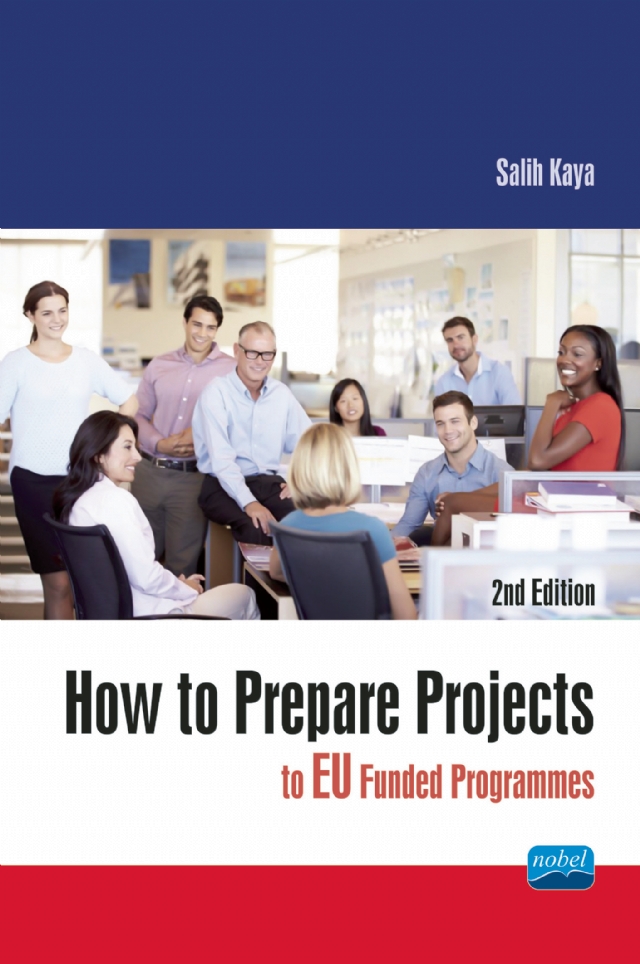

Being aware of humour's potential strength to change people's mood, ancient Greek philosophers, literary critics, poets and writers from all ages conceptualised and employed humour in their works. The aim of this study is to provide a brief overview of the concept of humour throughout ages from ancient eras to the modern day. Furthermore, it provides some examples of literary works from English and Russian literature and scrutinises various tools and functions of humour in these works.
A versatile poet of the Restoration period and an heir to Milton's talents, John Dryden (1631-1700) exhibits his confidence in an employment of humour in his works. Dryden draws political portraits through his refined technique and supreme control of verses.
Russian literature cannot be defined without Anton Chekhov (1860-1904), an unfortunate doctor with a great talent to produce short stories and plays. Although Chekhov's plays have become milestones in realist theatre in the West, his most memorable contribution to Russian literature was his prose fiction. Despite the framework of social issues in his short stories, Chekhov appears to entertain readers by his unprecedented ability to convey his sense of humour.
Goaded by the restricted condition of denigrated women in her community and throughout the world, Virginia Woolf (1882-1941) addresses the whole world by aspiring to represent women's voices. Despite the pervading hue of feminism and depression in her works, Woolf sometimes includes a breath of humour in some of her works.

We have included the concepts of irony, parody and satire, which are frequently used together with humor or as sub-types of humor in Western literature in order to determine the effect of the Western sense of humor on the Turkish literature's sense of humor. While pointing to the historical development of these concepts, we also tried to identify their samples in the Turkish humor tradition. We tried to determine the counterparts of these genres in the Turkish novel, which is on the verge of innovation, by considering especially the literature of the Second Constitutional Period, in which the Turkish culture was in touch with the West. Therefore, we mentioned the changes of humor and the concepts related to humor in the history of Turkish literature and during the Second Constitutional Period, in which the influence of Western literature was strongly felt, the new meanings that humor concept has gained. As a result, we dealt with the author's purpose in using humor, the form that the author uses in creating humor and the issues criticized through humor.
We also included a chapter on humor in English literature to juxtapose the comic effect in English and Turkish literature. This chapter on humor in English literature helps to envision the sense of humor in Western tradition and see the similarities between English and Turkish literary works in terms of comedy and humor.
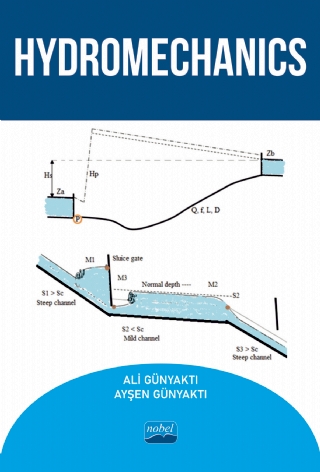
Water is essential for human being, animals, vegetation, and wild life. They use water mainly for drinking, cleaning, irrigation, energy production, recreation, and watering the livestock. About 70 percent of the fresh water is used for irrigation purposes in Turkey. However, fresh water resources are commonly far away from the location where it is needed. Therefore, the transfer of water is a must between such two locations. The transfer of water from the source point to the required position is performed by means of closed conduits under pressure or open channels having free surface under atmospheric pressure. Water transportation in pipe systems may include pumps or turbines and some control apparatus which must be encountered in energy equations.
This book uses the basic principles of the Fluid Mechanics for the design of the closed conduits and open channel systems necessary for the transfer of water between two points. Many solved examples are supplied for better understanding the way of using the theory explained in each chapter. There are also many problems at the end of each chapter similar to the examples supplied beforehand. They may be solved as homework by the students or to check their knowledge about the explained theory in each chapter.

This book takes a step back and critically analyses the factors and actors which affect Turkish foreign policy within a theoretical and conceptual framework as well as a historical setting covering the Kemalist period in particular. In addition, this book presents its subject matter from a broader and longer perspective, taking together both material and ideational phenomena, all the while focussing on the ideas, ideologies and norms which are ignored by many analysts of Turkish politics.
Turkish foreign policy of the past and even up to the present appears to be a product of certain “foundations” that were laid down by the Kemalist leadership and cadres after the establishment of the Turkish Republic. However, this book reviews these foundations comparatively with the Ottoman modernisation period including as well certain detailed references to the classical age of the Empire in order to demonstrate that there are not so much epistemological ruptures between past and present in a broader sense.

Sosyal medya ve onun getirdiği değişimler, bugünün şartlarında hızlı bir şekilde ilerlemekte ve pazarlama alanında da kendini göstermektedir. Kitap, esas itibariyla sosyal medya üzerinden yapılan pazarlamaya odaklanmakla beraber sosyal medyada ün kazanmış kişiler (fenomenler) üzerinden yapılan pazarlamayı da ele almaktadır. Son yıllarda sosyal medya fenomenlerinin, firmalarla anlaşarak etkileyici güçlerini pazarlamaya kaydırmaları ile ortaya çıkan “influencer marketing” kavramı da kitapta detaylı bir şekilde anlatılmaktadır. Tüketici davranışları konusu, tüketici algısı ve satın alma niyetleriyle birlikte anlatılmış ve sosyal medya fenomenlerinin bu konuda etkinliği örnek bir uygulamayla açıklanmaya çalışılmıştır. Önde gelen bazı sosyal medya uygulamalarının kullanımına dair tavsiyeler de veren kitap, bu alanda kendini geliştirmek isteyen kişilere farkındalık kazandırmayı amaçlamaktadır. Ayrıca kitap, uygulama kısmı ile bu alanda çalışmak isteyen akademisyenlere ve bu stratejileri kullanarak firmalarını geliştirmek isteyen işletme sahiplerine de fayda sağlayacak bir kaynak olarak sunulmaktadır.



Neither mathematics nor finance consists only of numbers. The tasks aim not only to solve financial problems with mathematical tools but also to realize mathematical and financial understanding by internalizing financial concepts. This book gives an opportunity through the tasks to understand how the financial literacy framework was formed at an early age, and how the financial understanding of children develops.
This book targets teachers, children K-12, and their parents. You can follow the financial development of the children while you are trying to handle the tasks enjoyable. It is a more rational way to expect individuals to develop their financial literacy skills from early ages, and make optimal financial decisions by spreading their financial behaviors in conscious into their lives.


This work produced by scholars from 16 universities in six different areas in theoretical and applied studies (such as History, Public Administration, Law, International Relations, Education, Economics, Sociology, Health Services, Geography, and Communication) discusses at length the phenomenon of migration in Turkey by combining historical and current views.
This book, examining the phenomenon of migration in multidimensional terms from the window of the 21st century, contributes to the relevant literature together with the dynamism of the collective power in scientific production and reveals the historical mission of Turkey.

